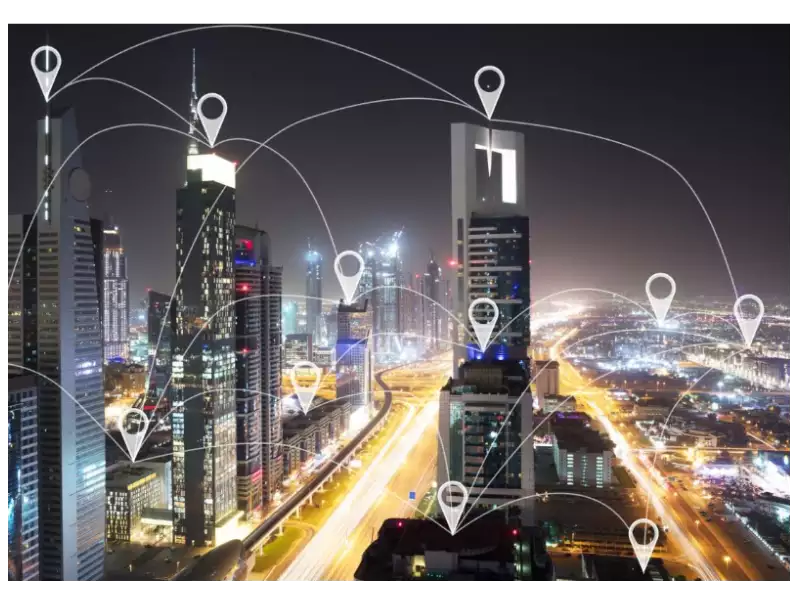


The United Arab Emirates has ambitions to build smart cities that utilize cutting-edge technologies to improve services, sustainability, and quality of life. Smart cities aim to leverage AI, IoT sensors, cloud computing, and other technologies to make better use of resources and data. Cryptocurrencies and blockchain technology could play an important role in these future smart cities. This blog post will explore how cryptocurrencies may shape the UAE's vision for smart cities.
Greater Financial Access with Digital Currency
Convenient and secure digital currencies could make it easier for more residents to participate in the economy. Instead of physical cash, residents could make instant payments, transfers, and purchases using their smartphones. Those without access to traditional banking, such as low-income households or migrant workers, would have options to securely store and transfer funds digitally. The UAE could develop an official digital currency controlled by the central bank, or allow private companies to trial cryptocurrencies in certain areas. Either model could provide the following benefits:
Secure and inexpensive payments: Cryptocurrency payments do not require middlemen like banks and have low fees. This could reduce costs for consumers and businesses.
Financial inclusion: Digital currencies could provide financial services to underbanked populations in the UAE, such as migrant workers who send remittances home. Blockchain offers a permanent, traceable record of all transactions.
New business opportunities: More residents using digital payments create opportunities for new types of businesses and services. This could fuel further innovation.
Fraud reduction: Cryptocurrencies utilize blockchain technology which provides a transparent, immutable record of all transactions. This could help reduce fraud and errors.
Utilizing Blockchain for Smart Government Services
Blockchain technology offers a secure, transparent platform for transactions and records. The UAE could leverage blockchain across government services and sectors in smart cities:
Digital identity verification: Blockchain could securely verify resident identities to access government services. Biometric data and personal information would be encrypted and decentralized.
Secure storage of important records: Blockchain provides an immutable record of events. The government could store citizens' educational degrees, healthcare records, business licenses, property information, and other records on the blockchain. This reduces fraud and streamlines data sharing between government entities.
Smart contracts: Government agencies could utilize smart contracts, or self-executing digital contracts, for various services.
For example, business licensing fees could automatically deduct from accounts each year based on the terms of a smart contract. Or traffic fines could automatically deduct from accounts based on traffic violations recorded using IoT sensors. This reduces bureaucracy and automates processes.
Voting: Blockchain-based voting could provide secure, transparent elections and voting for residents of smart cities. Votes would be anonymous but secure and verifiable. This may increase voter turnout and trust in results.
Supply chain management: The government could track the supply chain of food, medical supplies, and other goods using blockchain and IoT sensors. This ensures quality, safety standards, and provenance of supplies, and reduces fraud and error.
Potential challenges the UAE may face in implementing cryptocurrency and blockchain in smart cities:
Regulation: Cryptocurrencies are largely unregulated currently. The UAE would need to establish a clear regulatory framework to govern digital currencies, specify consumer protections, reduce illegal activity, and manage risks. Striking the right balance of regulation may be challenging.
Security risks: While blockchain is secure for transactions and data storage, cryptocurrency exchanges and digital wallets remain targets for hackers. Strong security measures would need to be in place to protect people's funds and personal information.
Volatility: The value of cryptocurrencies can fluctuate greatly. This volatility may discourage some from adopting digital currencies as a payment method or store of value. Stablecoins could help address price fluctuations.
Complex technology: Cryptocurrency and blockchain are complex technologies that are difficult for most people to understand. This could slow mainstream adoption. The government would need to invest in education and simplifying the user experience.
Digital divide: Not all residents may have access to smartphones and technology required to use cryptocurrencies. This could further disadvantage certain populations. Alternative access points like ATMs, terminals, and SMS may be needed.
Interoperability: Different blockchain networks and cryptocurrencies may have limited interoperability currently. This could pose challenges in creating a cohesive digital payment infrastructure across a smart city. Standards would need to be in place for different systems to interact and share data.
Energy usage: Some cryptocurrency mining operations require massive amounts of electricity. The environmental impact of cryptocurrency infrastructure would need to be considered, and more energy-efficient consensus mechanisms may be better options for smart cities.
Privacy concerns: While blockchain provides transparency into transactions, cryptocurrency can also enable anonymous payments. Regulations would need to aim for the right balance of privacy protection and fraud/crime prevention. Complete anonymity may not be suitable in some contexts.
Regulation, security risks, volatility, technology challenges, digital divide, interoperability, energy usage, and privacy concerns would all need to be addressed for cryptocurrency to work within smart cities. With proper planning and safeguards in place, these risks could potentially be mitigated. But implementing cryptocurrency on a large scale would require overcoming various obstacles.
In summary, cryptocurrencies and blockchain technology could help achieve the UAE's vision for smart cities in several ways, including providing digital payments, financial inclusion, new business opportunities, fraud reduction, digital identity services, secure data storage, smart contracts, voting, and supply chain management. Government and private sector entities in the UAE should consider cryptocurrency and blockchain solutions as promising technologies for the future smart cities. Overall, the transparent and secure nature of blockchain may build trust in these next-generation urban systems.
